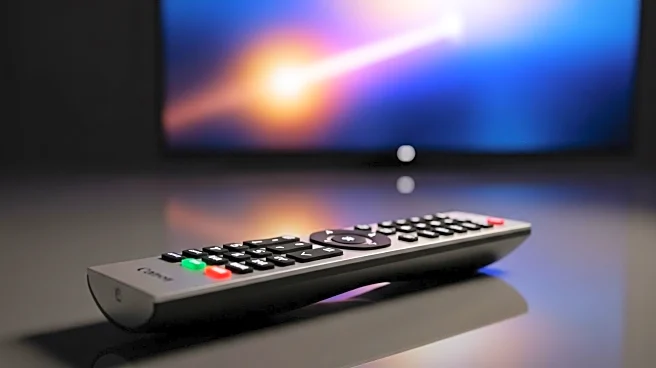What's Happening?
Several significant changes in reality TV programming are occurring in 2025, affecting both network strategies and viewer engagement. Taylor Frankie Paul has been announced as the new lead for The Bachelorette, prompting ABC to adjust its premiere schedules. Love on the Spectrum has won an Emmy, enhancing streaming platforms' prestige. Kristin Cavallari has decided to leave reality TV, indicating a trend of talent exits. The Chrisley family has returned to television amidst legal controversies, while engagements on shows like Love Island and The Challenge continue to drive tabloid interest.
Why It's Important?
These developments highlight the evolving landscape of reality TV, where network decisions and streaming platforms are increasingly influenced by viewer preferences and cultural trends. The Emmy win for Love on the Spectrum underscores the growing importance of streaming services in delivering quality content. Kristin Cavallari's departure may signal a shift in how reality TV stars view their careers, potentially leading to fewer legacy returns. The Chrisley family's return suggests that controversy remains a potent draw for audiences, while engagements on popular shows continue to fuel fan interest and media coverage.
What's Next?
As these changes unfold, networks may continue to reshuffle schedules to accommodate new programming strategies. Streaming services are likely to capitalize on their increased prestige by investing in more high-quality reality content. The departure of established stars like Kristin Cavallari could lead to a new wave of talent entering the reality TV space. Viewer engagement with family sagas and relationship dramas is expected to remain strong, driving further media attention and social media discussions.
Beyond the Headlines
The shifts in reality TV programming may also reflect broader cultural changes, such as the increasing demand for authentic storytelling and the impact of social media on viewer engagement. The emphasis on personal narratives and controversies suggests a move towards more personality-driven content, which could influence future programming decisions and audience expectations.








